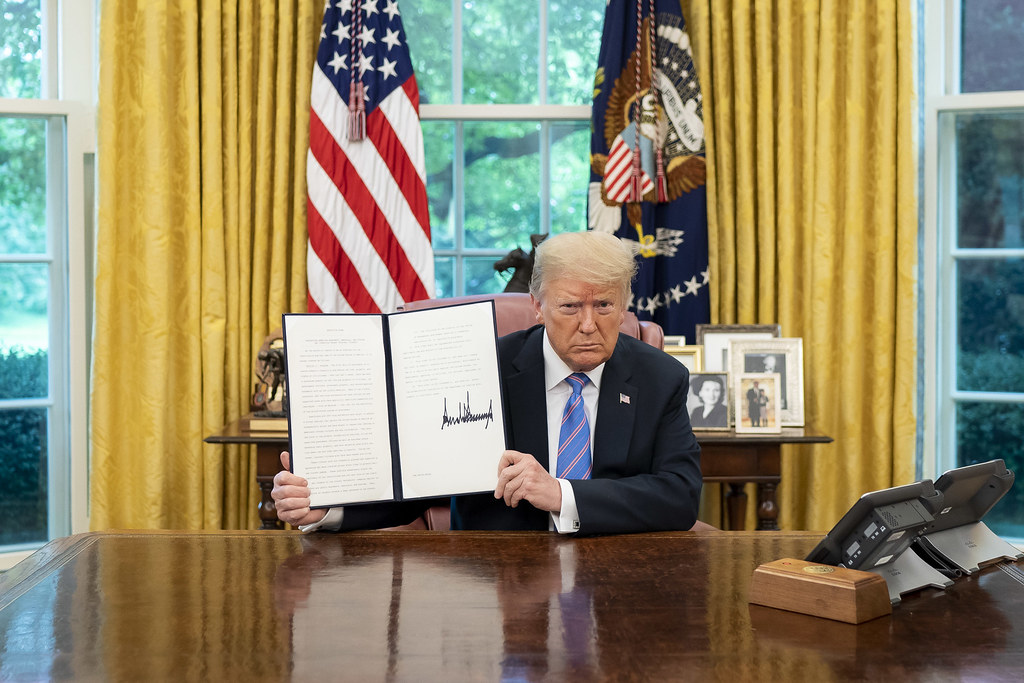On May 5th, 2025, U.S. lawmakers introduced a new crypto market structure bill—an ambitious effort meant to finally bring clarity to digital asset regulation. But just one day later, political backlash brought that momentum to a halt.
The bill was supposed to be the next chapter of FIT21, offering clear rules, defined agency roles, and protections for both investors and innovation. Instead, it’s become a case study in how fast crypto legislation can get tangled in Washington’s political web.
Why the Bill Mattered in the First Place
This proposal aimed to resolve one of crypto’s biggest headaches: who regulates what.
It would have drawn clean lines between the CFTC and SEC, so digital asset developers wouldn’t have to guess if they were building a security or a commodity. It also called for greater public disclosures, allowing crypto projects to operate more transparently.
Supporters like Rep. French Hill and Rep. GT Thompson said the bill would give innovators the certainty they need to build responsibly. But behind the scenes, controversy was brewing.
Trump’s Crypto Ties Spark a Political Firestorm
The bill’s momentum hit a wall when Rep. Maxine Waters, ranking Democrat on the House Financial Services Committee, announced she would block the scheduled joint hearing.
Her reason? President Trump’s growing presence in the crypto world.
Over the past few months, Trump has gotten more involved with digital assets, raising red flags among Democrats. Trump hosted a private dinner with top holders of his own memecoin, TRUMP, and his son, Eric Trump, helped secure a $2 billion stablecoin deal with Abu Dhabi firm MGX—one that could personally benefit Trump by hundreds of millions of dollars.
Another report showed Freight Technologies bought $20 million worth of TRUMP coins to influence future U.S. trade policy.
This made Waters question the integrity of the legislation. She fears Trump’s personal financial interests could corrupt its intent. She announced she would block the hearing and instead plans a separate investigation into World Liberty Financial, the issuer of the USD1 stablecoin used in the MGX deal.
The political divide only grew from there.
Democrats Hit the Brakes on Crypto Legislation
Waters isn’t alone in her skepticism. Democratic lawmakers are now distancing themselves from both this bill and other pending crypto legislation, particularly the GENIUS Act, a stablecoin-focused proposal.
As reported by Axios, Sen. Chuck Schumer advised Democrats to pause support until national security and financial system risks are addressed.
Other prominent Democrats—Elizabeth Warren, Ruben Gallego, Adam Schiff, and more—have also raised concerns. Senator Warren took to Bluesky to call out the MGX deal, and she and Sen. Jeff Merkley sent a letter to the U.S. Office of Government Ethics, warning of potential corruption. You can read the full letter here.
Meanwhile, Trump has denied any wrongdoing, claiming in a recent NBC News interview that he’s not profiting from any of these ventures.
Still, the damage is done—at least politically.
The Industry Wants Action, But Time Is Running Out
Despite the chaos, crypto lobbying groups continue to push for progress. The Blockchain Association, Crypto Council for Innovation, and others issued a joint statement on X urging lawmakers not to let politics stop the conversation.
They aren’t just worried about delays; they’re worried about missing the moment.
The U.S. is in a tight race with other countries to build a strong digital asset framework. Industry leaders see this bill and the GENIUS Act as a chance to make the U.S. a global leader. But infighting could set everything back.
What This Means for the Future
This isn’t just about one bill. It’s about whether the U.S. can move forward on crypto regulation without getting caught up in partisan drama.
Supporters say the bill is essential for progress. Critics say it needs more guardrails. And caught in the middle are crypto investors, developers, and institutions, all waiting for clarity that might not come anytime soon.
According to Jaret Seiberg of TD Cowen, even with the delays, the bill could still pass the Senate eventually. But he also admitted that politics are making it very hard for Democrats to back any crypto legislation in the current climate.
The crypto market structure bill was supposed to fix regulatory confusion. Instead, it’s now a symbol of the broader tension between innovation and politics.
As of today, the bill is stalled. Hearings are on hold. Investigations are beginning. And lawmakers are more divided than ever.
Whether this moment leads to better oversight or deeper gridlock remains to be seen.



